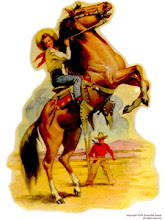I was surprised to see just how many people got these 2 homophones mixed up when writing articles on their blog.
Weather: noun The short term state of the atmosphere at a specific time and place, including the temperature, humidity, cloud cover, precipitation, wind, etc. unpleasant or destructive atmospheric conditions, and its effects.
*Homophones: wether(a castrated sheep.), whether
The weather was warm and humid.
The bad weather kept us from going fishing.
whether pronoun, which one of the two, sometimes used in place of "if"
* Homophones: weather
* Homophones: wether
1. Used to introduce an interrogative content clause (indirect question) that consists of multiple alternative possibilities, and indicate uncertainty between them; if.
He chose the correct answer, but whether by luck or by skill I don't know.
2. Used to introduce a yes-or-no interrogative content clause (indirect question) that consists of a single possibility, and indicate uncertainty over it; if, whether or not.
Do you know whether he's coming?
3. Used to introduce multiple alternative possibilities, and indicate the irrelevance of which is the case; regardless of whether, no matter whether.
He's coming, whether you like it or not.
"He's coming, whether you like it or not" is ungrammatical but is often used when speaking or writing.
Homophones and Homonyms
Homophones are words that sound like another when spoken but have different meanings and use, different spelling and origin.
Homonyms are words that are spelled like another but of a different meaning.
(e.g., bank= a place where you keep money,
bank= the edge of a river.
Words from the first group are the most common misused words in the English language when writing.
Most of the mistakes I see in writing on websites and blogs are words that are used quite often in the English language. Most of them fall into the homophones category. I see a lot of blogs that contain these common mistakes. Needless to say after a while I quit reading the blogs. So this is a reminder to all bloggers READ what you post and look for these common mistakes. I'm sure your readers will be very thankful.
I have been receiving emails with questions about oxymoron, euphemism, metaphor, cliche, palindrome,
anagram, and pleonasm.
The most frequent ones we see on the internet are usually OXYMORON. I know you have received (as all of us have) some ads/emails that say free loan, biggest little, and/or pretty ugly. I get a laugh every time I see these ads.
Well, my dear readers here are the answers to what each of these are.
oxymoron: a figure of speech by which a locution produces an incongruous, seemingly self-contradictory effect, as in "cruel kindness"
euphemism: 1. the substitution of a mild, indirect, or vague expression for one thought to be offensive, harsh, or blunt. 2. the expression so substituted: "To pass away" is a euphemism for "to die."
metaphor: a figure of speech in which an expression is used to refer to something that it does not literally denote in order to suggest a similarity, as in "love is a battlefield.
cliche': A phrase or opinion that is overused and betrays a lack of original thought. For example: "One man’s trash is another man’s treasure."
palindrome: A word, phrase, verse, or sentence that reads the same backward or forward. For example: A man, a plan, a canal, Panama!
anagram: a word, phrase, or sentence formed from another by rearranging its letters: “Angel” is an anagram of “glean.”
pleonasm: 1. the use of more words than are necessary to express an idea; redundancy.
2. an instance of this, as free gift or true fact.
3. a redundant word or expression.
A little language humor

Word for the week: arachibutyrophobia
Learn a new word every week to expand your vocabulary.
Almost everyone likes peanut butter but there are some who suffer with arachibutyrophobia
rachibutyrophobia : fear of peanut butter sticking to roof of mouth
I don't think a Psychiatrists, Psychologists, Psychotherapists or a Mental Health Specialists
would ever use this word in front of a patient who has this phobia even if it is the correct word for their fear.
hippopotomonstrosesquippedaliophobia... the fear of long words
Ludibrious:Adj.; A subject of jest or mockery – This word describes a person, thing or situation that is likely to be the butt of jokes. Use it when you want to sound justified in poking fun at someone.
- erotem: noun; The symbol used in writing known as a question mark...?
neologism: noun ; coining of new words, new word or meaning
enormity: noun;heinousness, evilness, wickedness, monstrous, great size
abscond: verb; to run away and hide, depart hurriedly, avoid arrest.
samizdat: noun; clandestine publication of banned literature
anomaly: noun; something different, abnormal, peculiar, or not easily classified; deviation from the normal or common order, or form, or rule; a person who is unusual
obfuscate: verb; To make something obscure or hard to understand. ( Like the tax codes)
quintessence: noun; purest and most perfect form, manifestation, type, or embodiment
Lipogram: noun; A piece of writing that avoids one or more letters of the alphabet. From Greek lipo- (lacking) + gram (something written).]
triskaidekaphobia: noun; Fear of the number 13.
anomalous: adjective; irregular, deviant, abnormal
diatribe: noun; a bitter verbal attack or speech
ennui: noun; mental weariness, boredom
aficionado: noun; devotee of a sport or pastime
Subscribe to:
Post Comments (Atom)










2 comments:
No problems with the weather! But I have been having a dickens of a time keeping sweet and sweat straight. Quite disgusting when you use the wrong one.
Thankk you for this
Post a Comment